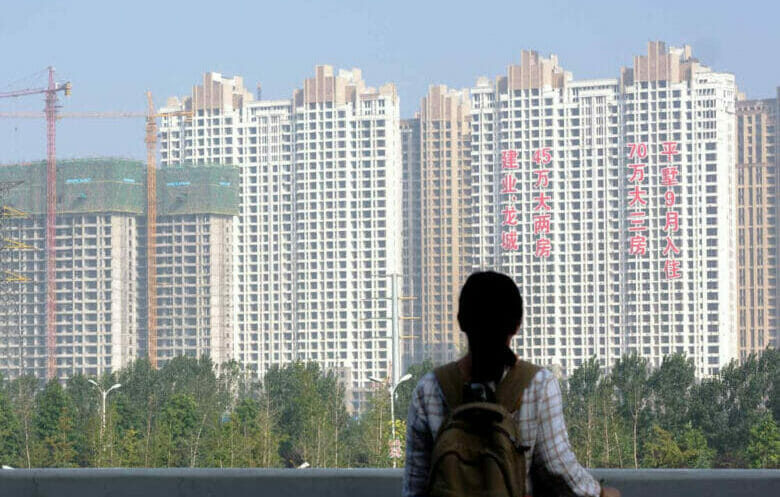
Housing demand in China seems to be picking up in response to supportive policies (Getty Images)
New home prices in mainland China rose for the first time last month since January 2022, as the loosening of COVID restrictions and the launch of supportive policies helped stabilise demand in the country’s struggling housing market.
January’s 0.1 percent month-on-month price increase followed a 0.2 percent dip in December, according to Reuters calculations based on data released Thursday by the National Bureau of Statistics. New-home prices rose on a monthly basis in 36 of the 70 large and mid-sized cities surveyed, compared to just 15 cities in December.
The uptick in housing demand comes after Beijing announced a raft of supportive measures for the real estate industry in recent months, including a 16-point rescue package unveiled by the central government in November.
Rescue Measures
Despite the monthly boost, prices were still down 1.5 percent year-over-year in January, Reuters found – the same rate as in December. Only 15 cities saw a boost in prices compared to January 2022, including Shanghai and Beijing, the NBS data shows.

Beijing is keeping a close on eye on troubled real estate developers, according to China’s Vice Premier Liu He
Home sales plunged by 28.3 percent in China in 2022, amid a clampdown on lending to the property sector that began in the previous year and the imposition of strict measures to control the coronavirus. Property investment also fell 10 percent year-over-year, the first decline since records began in 1999.
As part of a campaign to reduce financial risks in the debt-burdened real estate sector, the People’s Bank of China told banks to limit lending to developers at the start of 2021. Late last year, however, officials began to backpedal on the lending restrictions as a cascade of developer defaults combined with a historic housing market slump posed growing risks to the world’s second-largest economy.
China’s Vice Premier Liu He last month underscored the government’s resolve to support the property sector, telling an audience at the World Economic Forum that Beijing was carefully watching the rapid decline in real estate prices and home sales as a potential source of systemic risks.
The rescue package put forward by the country’s central bank and top banking regulator included greater access to credit for developers and funding to ensure handover of new homes to buyers. Around 30 provincial and city governments issued a barrage of supportive measures between December and January, from cutting mortgage rates for first-time homebuyers to relaxing purchase restrictions.
Crisis Isn’t Over
The January boost in new-home prices included Chengdu, capital of Sichuan province, which saw prices rise by 8.3 percent in both monthly and annual terms, while Beijing saw year-over-year growth of 5.2 percent. Shanghai registered a year-over-year increase of 4.2 percent, despite a months-long lockdown imposed on the mainland financial hub in the first half of 2022.
Hangzhou in Zhejiang province, Chengdu in Sichuan province, and Changsha in Hunan province also registered solid year-over-year growth at 6.5 percent, 8.6 percent, and 3.4 percent, respectively. By contrast, prices fell 0.3 percent and 0.9 percent year-over-year in the tier-1 cities of Guangzhou and Shenzhen.
Harbin, capital of China’s northernmost province Heilongjiang, saw the sharpest drop of 7 percent compared to the previous year, followed by Wuhan in central China’s Hebei province at 5.7 percent.
Sale prices for lived-in homes declined on a monthly basis in 57 cities in January, while just 13 cities saw increases in January – up from seven in December. The NBS reported that sale prices for second-hand homes grew by 2 percent month-on-month in January, compared to a 5 percent drop in the previous month.
Moody’s Investors Service recently said it expects property sales in China to continue to fall this year, with weakness in the housing market putting more pressure on local government financing, according to an account by the South China Morning Post.
Leave a Reply